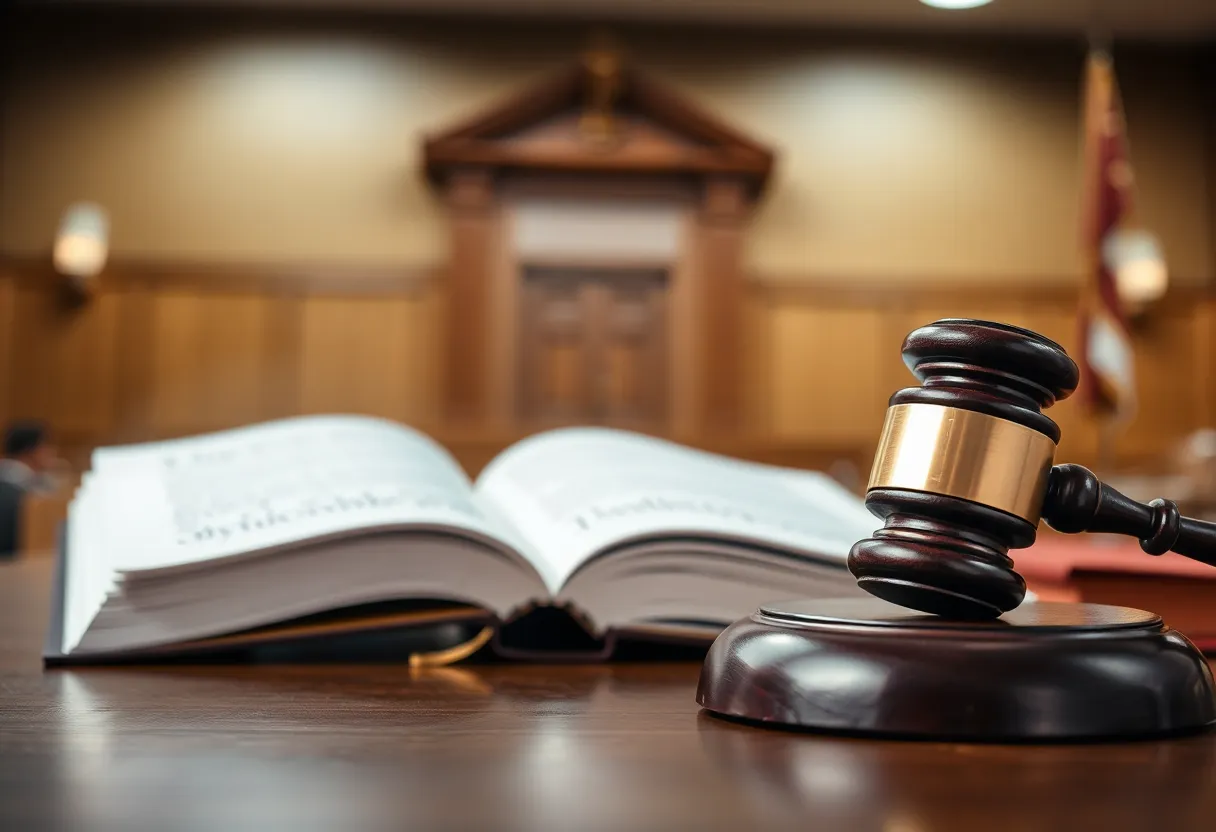News Summary
A federal judge has dismissed Donald Trump’s $15 billion defamation lawsuit against The New York Times, citing significant issues with the lawsuit’s format and length. The judge criticized the 85-page complaint for failing to meet federal standards and characterized it as more of a political document than a serious legal claim. Trump’s legal team has four weeks to refile the suit with stricter guidelines. The dismissal points to the ongoing challenges related to defamation law, especially for public figures like Trump in their dealings with major media outlets.
New York – A federal judge has dismissed President Donald Trump’s $15 billion defamation lawsuit against The New York Times due to significant issues regarding the complaint’s format and length. Judge Steven D. Merryday ruled that Trump’s 85-page lawsuit did not align with federal filing requirements and criticized it for being improper.
In his ruling, Judge Merryday explained that the complaint fails to meet the standards outlined in Rule 8 of the Federal Rules of Civil Procedure. He stated that legal complaints should consist of a “short, plain, direct statement of allegations of fact” and called the lengthy complaint “decidedly improper and impermissible.” The judge expressed concern that the lawsuit did not serve its intended purpose but rather acted as “a public forum for vituperation and invective” and “a megaphone for public relations.”
As a result of the dismissal, Trump’s legal team has the opportunity to refile the complaint within four weeks, but they must adhere to a 40-page limit. The ruling has raised eyebrows, as many legal experts had already characterized the original case as meritless, viewing it more as a publicity stunt than a serious legal endeavor. Trump’s lawsuit accused The New York Times of serving as a “virtual mouthpiece” for the Democratic Party, and it named publisher Penguin Random House along with four Times reporters as defendants.
The complaint included statements that praised Trump, along with references to other lawsuits he has previously filed against various media outlets, further emphasizing its political underpinnings rather than a foundation in substantial legal principles. A spokesperson for Trump indicated that the former president will continue to pursue accountability against what he terms “Fake News” through this lawsuit, solidifying the motive behind the legal action.
The New York Times expressed satisfaction with the judge’s ruling, interpreting it as an acknowledgment that Trump’s complaint was more of a political document rather than a serious legal filing. Executive editor Joe Kahn remarked that Trump was misguided both in his understanding of the factual elements and legal framework related to defamation cases, conveying confidence in the potential outcome should the matter proceed further.
This lawsuit was filed earlier in the week and sought a staggering $15 billion in damages, reflecting the high stakes involved. Legal analysts highlighted the lack of merit within the case, suggesting that its primary purpose may be to generate media attention rather than to stand on solid legal ground.
Regardless of the dismissal, the case continues to draw attention in the ongoing discourse surrounding media relations and Trump’s contentious interactions with various news outlets. Although there are procedural avenues for Trump’s legal team to revisit the lawsuit under appropriate guidelines, the dismissal signals a significant setback in the former president’s attempts to challenge the credibility of one of the nation’s leading news organizations.
As the legal situation develops, it remains to be seen how Trump’s team will adapt their strategy and whether they can present a complaint that meets the judicial standards required in federal court. Meanwhile, the implications of this ruling extend beyond Trump and The New York Times, highlighting the complexities and challenges surrounding defamation law in relation to public figures and media criticism.
The outcome of this case may set a precedent for future litigation involving politically charged accusations against media entities, underscoring the delicate balance between free speech and defamation in the landscape of American law.
Deeper Dive: News & Info About This Topic
- The New York Times
- Wikipedia: Defamation
- ABC News
- Google Search: Trump lawsuit New York Times
- CNN
- Encyclopedia Britannica: Law
- CNBC
- Google News: Trump defamation lawsuit

Author: STAFF HERE NEW YORK WRITER
The NEW YORK STAFF WRITER represents the experienced team at HERENewYork.com, your go-to source for actionable local news and information in New York, the five boroughs, and beyond. Specializing in "news you can use," we cover essential topics like product reviews for personal and business needs, local business directories, politics, real estate trends, neighborhood insights, and state news affecting the area—with deep expertise drawn from years of dedicated reporting and strong community input, including local press releases and business updates. We deliver top reporting on high-value events such as New York Fashion Week, Macy's Thanksgiving Day Parade, and Tribeca Film Festival. Our coverage extends to key organizations like the Greater New York Chamber of Commerce and United Way of New York, plus leading businesses in finance and media that power the local economy such as JPMorgan Chase, Goldman Sachs, and Bloomberg. As part of the broader HERE network, including HEREBuffalo.com, we provide comprehensive, credible insights into New York's dynamic landscape.





